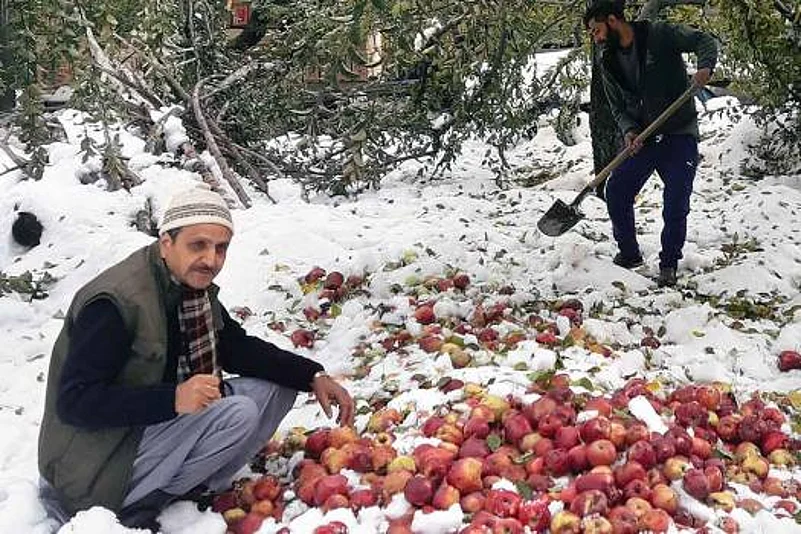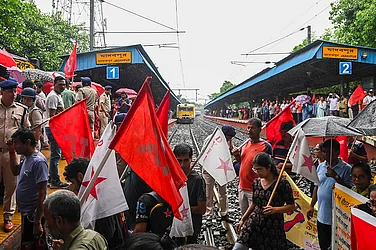The Concerned Citizens' Group (CCG) headed by former finance minister and BJP leader Yashwant Sinha on Tuesday said the Union government should compensate the Kashmiris for their economic losses which were the direct result of unilateral action by the government.
“The government prevented the movement of trucks on the highways and therefore they must take responsibility for hurting the apple trade,” the CCG report said.
The report is based on the finding of its two visits to the Valley since August 5, 2019 when the Narendra Modi government revoked the special status of the state of Jammu and Kashmir and bifurcated it into two Union territories. The other members of the group are Wajahat Habibullah, former National Chief Information Commissioner, Air Vice-Marshall (Retd) Kapil Kak and senior journalist Bharat Bhushan.
The report said that Kashmir’s economy plunged into an abyss with the government advisory issued in early August asking tourists and the non-Kashmiri labour force to leave. “Even non-Kashmiri students studying in the Valley were advised to go home. In one move the entire economy was shattered across sectors ranging from tourism, handicrafts, Information Technology, industry and horticulture at a time which is normally their peak time.”
“It hurt the economy grievously and that process has not stopped,” the report said quoting a representative of the Kashmir Chamber of Commerce and Industry. They put the total estimate of loss to the extent of Rs.12,000 crore and mounting.
The agricultural sector was one of the worst affected after August 5. The first sector to suffer was sheep-breeding. People could not celebrate Eid which fell on August 12 due to restrictions and not even 30 per cent of the sheep were sold (they are sacrificed on Eid). The remaining 70 per cent, according to farmers’ representatives, were sold at throwaway prices after Eid.
The report quotes a spokesperson for the Kisan Tehreek saying that although there was a bumper crop of cherry and pear this year, most of it could not be sent to other states even before August 5 (Cherry season is June and it is transported out in July) because of restrictions on highway movement. “Two days were reserved for the movement of army convoys in a week and on the other days civilian traffic were allowed only between 10 AM and 6 PM. This affected the distribution of the cherry and pear crop,” the report added.
The report said after the August 5 internet shutdown also affected the sale and distribution of apples. “On top of that in the first week of November, an unexpected early and heavy snowfall destroyed many standing apple trees and the plucked fruit could not be packed and sent to the market,” the report added.
Of the estimated 24 lakh MT of apples produced, apparently not more than 6 lakh MT has been transported for distribution. The market intervention by NAFED has not been very successful, the report said.
The CCG also called for release of all Kashmiris who have been taken into preventive detention under the Public Safety Act (PSA). “If there are specific cases against individuals and they have been sent to jails outside the state, they should be brought back and housed locally. It is a punishment for their family members to travel to UP, Delhi, Rajasthan or Haryana to meet the prisoners,” the report said.
The report calls for restoration all internet and mobile phone connections in J&K. “It is immoral to impose a collective punishment on the entire population of a region.”
“Lift all curbs on all peaceful political activity and allow peaceful public protests. Lift all restrictions on the movement of public and commercial vehicles on the national highways to restore normal road communication links. Alleviate the fears of the Kashmiris about their future by starting a multi-level dialogue process with all those affected by the events following August 5,” the report said.






















